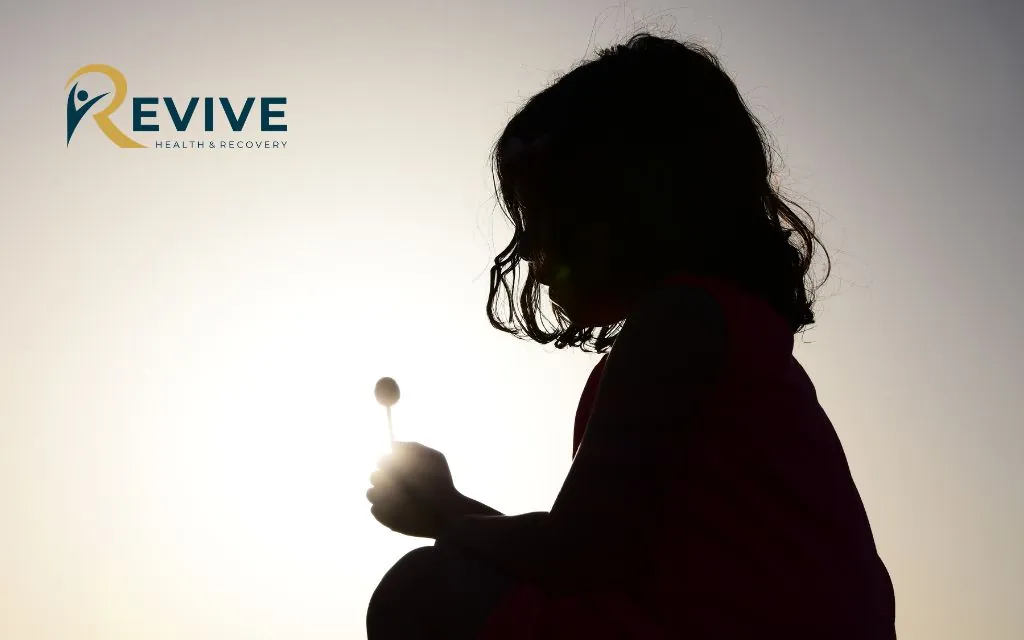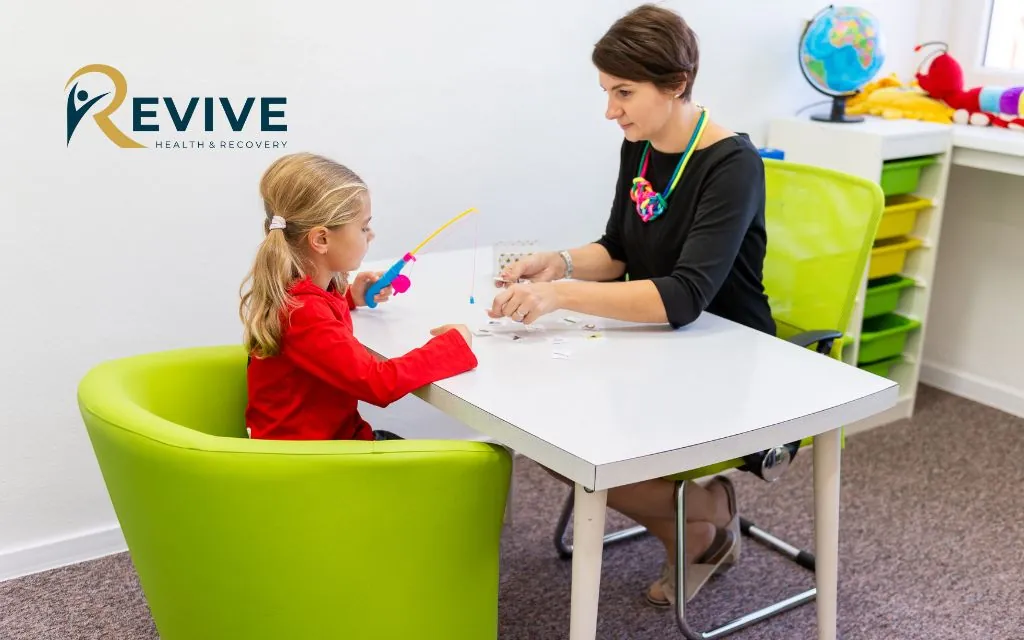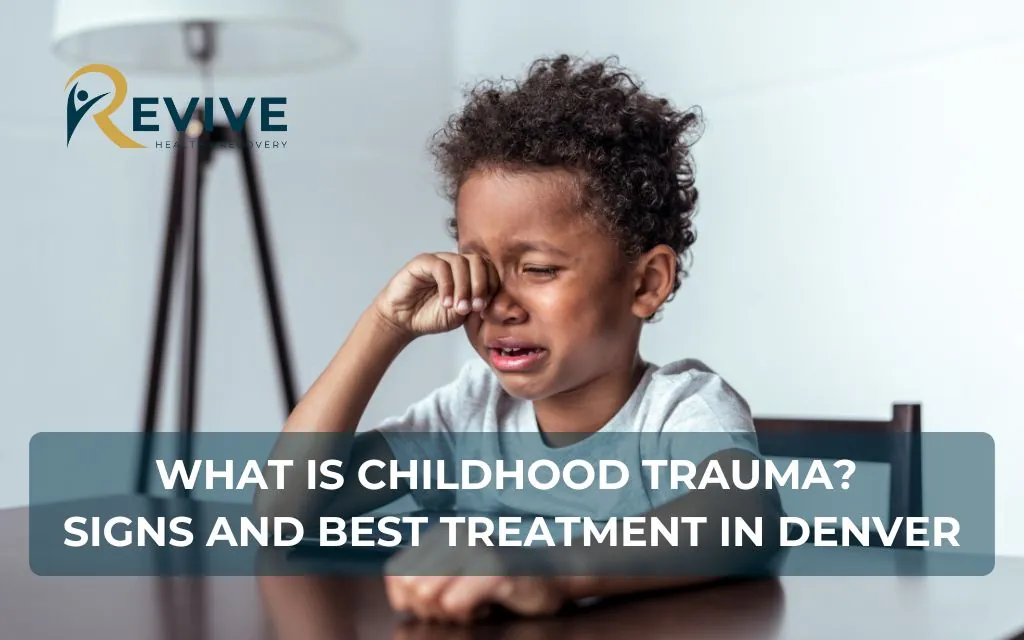In Healing Trauma Stories‘ recent years, our understanding of Adverse Childhood Experiences (ACEs) has transformed how we approach mental health treatment. These early life events shape our neural pathways, emotional responses, and even physical health outcomes well into adulthood. At Revive Health Recovery, we recognize that childhood trauma requires specialized care rooted in evidence-based practices.
This guide aims to equip Denver residents with essential knowledge about childhood trauma and connect you with comprehensive, compassionate care. Whether you’re seeking answers for yourself or supporting a loved one, understanding the foundations of trauma creates the first bridge toward recovery.
What Is Childhood Trauma?
Childhood trauma encompasses overwhelming experiences that exceed a child’s capacity to cope. These experiences disrupt the sense of safety and security essential for healthy development.
Trauma manifests in several forms:
- Acute trauma results from a single incident such as an accident, natural disaster, or sudden loss.
- Chronic trauma occurs repeatedly over time, including ongoing abuse, neglect, or exposure to domestic violence.
- Complex trauma involves multiple traumatic events, often within relationships meant to provide safety and stability.
Discover about the different types of trauma in our dedicated guide for more detail.
According to Colorado’s Department of Public Health and Environment, nearly 17% of Denver children have experienced three or more Adverse Childhood Experiences (ACEs), placing them at significantly higher risk for mental health challenges later in life.
Common adverse childhood experiences include:
- Physical, emotional, or sexual abuse
- Neglect or abandonment
- Household substance use disorder
- Parental separation or divorce
- Incarceration of a family member
- Witnessing violence
- Living with a family member experiencing mental illness
To dive deeper into what causes childhood trauma, explore our detailed guide.

How Trauma Affects the Brain and Body
Childhood trauma fundamentally alters brain development. When young people experience chronic stress, the brain prioritizes survival mechanisms at the expense of higher-order thinking and emotional regulation.
The developing brain forms neural pathways based on repeated experiences.
In traumatic environments, stress response systems become hyperactive, leading to a persistent state of hypervigilance. The prefrontal cortex—responsible for reasoning and impulse control—often shows reduced volume and activity in trauma survivors.
Research demonstrates that childhood trauma triggers epigenetic changes, altering how genes express themselves without changing the underlying DNA. This explains why trauma effects can persist decades after the original experiences and sometimes influence subsequent generations.
These neurobiological changes manifest physically through:
- Heightened inflammation responses
- Disrupted stress hormone regulation
- Compromised immune function
- Altered pain perception
- Digestive system disorders
Common Symptoms and Signs to Look For
Recognizing the effects of childhood trauma requires awareness of various manifestations across behavioral, emotional, and physical domains.
Behavioral Indicators:
- Difficulty maintaining healthy relationships
- Social withdrawal or isolation
- Aggressive or impulsive behaviors
- Substance use as self-medication
- Perfectionism or constant achievement-seeking
- Difficulty setting boundaries
For a broader overview of trauma symptoms, explore this resource.
Emotional Indicators:
- Persistent feelings of shame or worthlessness
- Emotional numbness or disconnection
- Overwhelming fear or anxiety
- Difficulty identifying or expressing emotions
- Persistent self-criticism
- Trust issues
Physical Indicators:
- Chronic fatigue or sleep disturbances
- Unexplained somatic complaints (headaches, stomach issues)
- Heightened startle response
- Chronic tension or pain
- Autoimmune conditions
- Cardiovascular problems
Could your current challenges stem from childhood trauma? Consider whether you experience persistent difficulties in relationships, emotional regulation, or maintaining a sense of safety and trust. These patterns often indicate unresolved developmental wounds that respond well to trauma-informed treatment.

Long-Term Effects of Childhood Trauma in Adulthood
Without appropriate intervention, childhood trauma casts a long shadow into adulthood, manifesting in numerous ways across life domains.
Studies consistently link ACEs to increased risk for depression, anxiety disorders, and post-traumatic stress disorder. For a deeper understanding of how childhood trauma in adults manifests, check out our comprehensive resource.
Trauma survivors often struggle with emotional regulation, experiencing intense emotions that seem disproportionate to current circumstances.
Professional impacts include higher rates of workplace burnout, absenteeism, and difficulty maintaining stable employment. Many survivors develop coping mechanisms that served as protection during trauma but create obstacles in adult professional settings.
Relational patterns typically reflect early attachment disruptions, including difficulty trusting others, fear of abandonment, or repeating unhealthy relationship dynamics. Many survivors oscillate between emotional dependency and isolation.
In Denver specifically, childhood trauma contributes significantly to community challenges including homelessness, substance use disorder, and involvement with the criminal justice system. The 2022 Denver Homeless Point-in-Time survey found that 78% of unhoused individuals reported experiencing childhood trauma.
Physical health consequences emerge decades later, with trauma survivors facing higher rates of:
- Autoimmune disorders
- Heart disease
- Chronic pain conditions
- Metabolic syndrome
- Cancer
- Premature mortality
Unique & Effective Treatment Options Available in Denver
Denver offers specialized treatment approaches for childhood trauma recovery, with Revive Health Recovery leading in evidence-based, integrative care.
Evidence-Based Therapies
- Cognitive Behavioral Therapy (CBT) helps identify and reshape trauma-related thought patterns that maintain distress. This structured approach focuses on present challenges while acknowledging their roots in past experiences.
- Eye Movement Desensitization and Reprocessing (EMDR) therapy directly addresses traumatic memories through bilateral stimulation, allowing the brain to process experiences that remain “frozen” in the nervous system.
- Trauma-Focused Cognitive Behavioral Therapy (TF-CBT) integrates trauma-sensitive interventions with CBT principles, particularly effective for addressing childhood trauma.
- Dialectical Behavior Therapy (DBT) combines acceptance and change strategies, teaching skills for emotional regulation, distress tolerance, and interpersonal effectiveness.
Creative Healing Modalities
- Art therapy for childhood trauma provides non-verbal expression channels, allowing survivors to externalize experiences that precede language development or that remain difficult to verbalize.
- Trauma-informed yoga for children and adults reconnects mind and body, teaching survivors to safely inhabit their physical experience while developing self-regulation skills.
- Mindfulness practices cultivate present-moment awareness and self-compassion, counteracting trauma’s tendency to trap survivors in past experiences or future anxieties.
Somatic & Holistic Therapies
Body-focused therapies recognize that trauma remains stored in the body, using various techniques to address physical manifestations of psychological wounds.
Somatic experiencing for childhood trauma focuses on completing physiological responses interrupted during traumatic events, releasing stored energy and restoring nervous system regulation.
Brainspotting identifies eye positions connected to traumatic activation in the brain, facilitating processing and integration of traumatic material.

Why Localized Care Matters – Healing in Denver
Receiving trauma treatment within your community offers distinct advantages for sustainable recovery. Denver-based care ensures your treatment integrates local cultural context and community resources.
Denver’s unique environment – from the stress-reducing access to nature to the city’s distinct socioeconomic dynamics – informs effective, contextualized trauma treatment. Local providers understand Denver-specific stressors and resilience factors that influence your healing journey.
Proximity to treatment reduces practical barriers, making consistent attendance and follow-through more feasible. Local care also facilitates connection with community support systems – from specialized support groups to trauma-informed community organizations – that reinforce clinical progress.
Reputable Denver trauma resources include Revive Health Recovery, Denver Health’s Outpatient Behavioral Health Services, and community organizations like the Trauma Resource Institute of Colorado.
How Revive Health Recovery Supports Childhood Trauma Healing
Revive Health Recovery provides comprehensive trauma treatment grounded in neuroscience and attachment theory. Our trauma-informed framework recognizes the widespread impact of childhood adversity while emphasizing capacity for healing and growth.
Our services include:
Individual Counseling with therapists specialized in developmental trauma, offering a safe space to process experiences and develop new narratives and coping skills.
Trauma-Focused Intensive Outpatient Program (IOP) provides structured, concentrated treatment while clients maintain daily responsibilities, ideal for those needing more support than weekly therapy.
Anxiety & PTSD Treatment addresses the specific manifestations of trauma-related anxiety with evidence-based protocols and holistic approaches.
“At Revive Health Recovery, we believe in the profound resilience of trauma survivors,” says our clinical director. “Our approach combines cutting-edge neuroscience with compassionate presence, creating the conditions for lasting transformation.”
Revive Health Recovery distinguishes itself through:
Integration of traditional clinical approaches with complementary modalities
Flexible treatment options accommodating various schedules and needs
Multidisciplinary team approach addressing mind, body, and relationship dimensions

Steps to Take Today
If you suspect childhood trauma is affecting you or someone you care about, consider these concrete steps toward Healing Past Wounds:
- Self-assessment: Reflect on patterns in your life that may connect to early experiences. Journaling about emotional triggers or recurring themes can provide insight.
- Contact a childhood trauma therapist in Denver: Reach out to Revive Health Recovery for a confidential consultation to determine appropriate next steps.
- Explore treatment options: Learn about various therapeutic approaches and determine which resonates with your needs and preferences.
- Connect with support: Consider trauma-informed support groups that provide community and validation during your healing journey.
- Implement self-care practices: Establish daily rituals that promote nervous system regulation – adequate sleep, nutrition, movement, and mindfulness.
Remember that healing happens gradually. Each step, however small, represents significant progress toward reclaiming your wellbeing.

FAQ About Childhood Trauma In Adults
What are common signs of unresolved childhood trauma in adults?
Common signs include difficulty regulating emotions, relationship challenges, chronic anxiety or depression, unexplained physical symptoms, and maladaptive coping mechanisms like substance use or workaholism. Revive Health Recovery offers comprehensive assessment to identify trauma-related patterns and develop targeted treatment plans.
How can I find a childhood trauma therapist in Denver?
To find a qualified trauma therapist in Denver, contact Revive Health Recovery for a consultation. Look for professionals with specialized training in trauma treatment modalities like EMDR, Somatic Experiencing, or TF-CBT. Verify their experience with developmental trauma specifically.
Is it normal to not remember childhood trauma?
Yes, memory gaps are common with childhood trauma. The brain protects itself through various mechanisms including dissociation and memory suppression. Revive Health Recovery’s trauma specialists understand these mechanisms and provide safe approaches to processing difficult experiences.
How long does trauma therapy take to show results?
Healing timelines vary based on trauma severity, duration, age of occurrence, and available support systems. Many clients report noticeable improvement within 3-6 months of consistent treatment. Revive Health Recovery provides realistic expectations and measures progress consistently.
What makes Revive Health Recovery unique in trauma treatment?
Revive Health Recovery offers Denver’s most comprehensive approach to trauma treatment, integrating evidence-based clinical methods with holistic modalities. Our team specializes exclusively in trauma and related conditions, providing expert care customized to each client’s unique needs and circumstances.
Conclusion
Childhood trauma creates deep imprints, but these patterns can transform with appropriate support. The brain’s neuroplasticity – its capacity to develop new pathways – remains active throughout life, creating ongoing opportunities for healing.
Your past experiences influence but do not determine your future. With specialized support, you can develop a new relationship with your history, one characterized by understanding, compassion, and freedom from limiting patterns.
Take the first step toward reclaiming your narrative with our Mile High City Trauma Care. Contact Revive Health Recovery today at (303) 268-4655 to schedule a consultation with our trauma specialists. Located in Denver at 1427 S Federal Blvd, we provide the expert guidance and compassionate presence necessary for genuine transformation.



